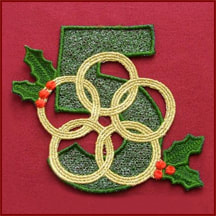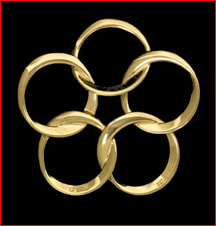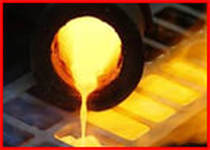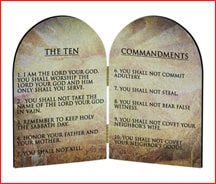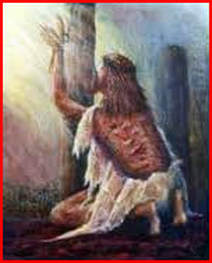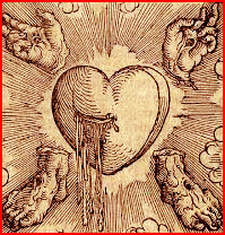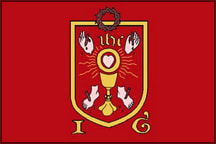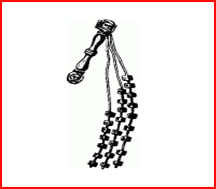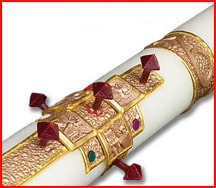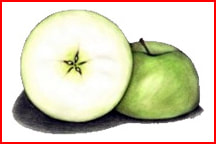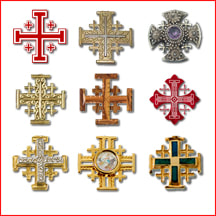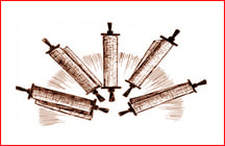| Devotion to Our Lady |
|
- Homepage
-
Daily Thoughts
- 2023 October Daily Thoughts
- Daily Thoughts Lent 2020
- Daily Thoughts for Advent 2019
- Daily Thoughts for October 2019
- Daily Thoughts for September 2019
- Daily Thoughts for August 2019
- Daily Thoughts for July
- Daily Thoughts for June
- Daily Thoughts for Easter 2019
- Daily Thoughts for Lent 2019
- Daily Thoughts for Christmas
- Daily Thoughts Easter 2022
- Sacred Heart
- Holy Ghost
-
Spiritual Life
- Holy Mass Explained
- First Friday Devotions
- First Saturday Devotions
- The Mercy of God
- Vocations
- The Path Everyone Must Walk >
- Gift of Failure
- Halloween or Hell-O-Ween?
- Ignatian Spiritual Exercises >
- Meditation is Soul-Saving
- Spiritual Communion
- Miraculous Medal
- Enrollment in Miraculous Medal
- St. Benedict Medal
- Holy Water
- Advice on Prayer
- Your Daily Mary
-
Prayers
- September Devotions
- Seven Sorrows of Our Lady
-
Novenas
>
- NV-Help of Christians
- NV-Nativity of Our Lady
- NV-Seven Sorrows
- NV- Sorrowful Heart
- NV-Pope St Pius X
- NV-La Salette
- NV-St Michael Archangel
- NV-Immaculate Heart
- NV-Assumption
- NV-Novena for Fathers
- NV-Novena for Your Mother
- NV-St Raphael Archangel
- NV-Souls in Purgatory
- NV-All Saints Day
- NV-Christ the King
- NV-Divine Motherhood
- NV-Guardian Angels
- NV-Rosary
- NV-Mirac Med
- NV- Imm Conc
- NV - Guadalupe
- NV - Nativity of Jesus
- NV-Epiphany
- NV-OL Good Success
- NV-Lourdes
- NV-St Patrick
- NV-St Joseph
- NV-Annunciation
- NV-St Louis de Montfort
- NV-OL Good Counsel
- NV-Last Supper
- NV-Passion
- NV-Pentecost
- NV-Ascension
- NV-Sacred Heart
- NV-Sacred Heart & Perpetual Help
- NV-Corpus Christi
- NV-OL of Perpetual Help
- NV-Queenship BVM
- NV-OL of Mount Carmel
- NV-St Mary Magdalen
- NV- Im Hrt
- August Devotions to IHM
- Immaculate Heart of Mary
- Litany of Dependence
- Prayers to St Mary Magdalen
- Prayers in Times of Sickness Disease & Danger
- Holy Souls in Purgatory
- Meditations on the Litany of Our Lady
- Special Feast Days
- Prayers to Mary (Mon-Sun)
- Litanies to Our Lady >
- Various & Special Needs
- Our Lady of the Rosary
- Our Lady of Mt. Carmel
- Our Lady of Perpetual Help
- Our Lady of Guadalupe
- Other titles of Our Lady
-
Rosary
- Downloads
- Consecration
- Easter Season
-
Holy Week
- Last Seven Words of Jesus >
- Characters of Passion >
- The Last Days of Christ
- Before Palm Sunday
- Palm Sunday
- Monday in Holy Week
- Tuesday in Holy Week
- Wednesday in Holy Week
- Holy Thursday (Last Supper)
- Holy Thursday (Agony & Arrest)
- Night Vigil with Christ
- Good Friday (Pilate & Herod)
- Good Friday (Way of Cross & Crucifixion)
- Saturday in Holy Week
-
Lent
- Ideas for Lent
- Daily Lenten Planner
- Daily Lenten Liturgy
- From Cold to Hot
- Lent with Aquinas
- Lent with Dom Gueranger
- Virtues for Lent
- History of Penance
- How Expensive is Sin?
- Confession of Sins
- Letter to Friends of the Cross
- Sermons for Lent
- Stations of the Cross >
- Lenten Prayers
- 7 Penitential Psalms
- Lenten Psalms SUN
- Lenten Psalms MON
- Lenten Psalms TUE
- Lenten Psalms WED
- Lenten Psalms THU
- Lenten Psalms FRI
- Lenten Psalms SAT
- Lenten Laughs
- Septuagesima
-
Christmas
- Epiphany Explained
- Suggestions for Christmas
- Food For Thought
- Christmas with Aquinas
- Christmas with Dom Gueranger
- Christmas Prayers
- Candles & Candlemas
- Christmas Sermons
- Christmas Prayers SUN
- Christmas Prayers MON
- Christmas Prayers TUE
- Christmas Prayers WED
- Christmas Prayers THU
- Christmas Prayers FRI
- Christmas Prayers SAT
- Twelve Days of Christmas >
-
Advent Journey
- Purgatory
- Christ the King
- Legion of Mary
- Scapular
-
Saints
-
Martyrs for the Faith
>
- Your Daily Martyr >
- All 365 Days of Martyrs
- Cristeros
- St Valentine & Valentine's Day
- Martyrs--Thomas Becket
- Martyrs--John the Apostle
- Holy Machabees
- Age of Martyrdom
- Carmelites of Compiegne
- Martyrs--Peter & Paul
- Martyrs--John the Baptist
- Martyrs--Andrew
- Martyrs--James the Great
- Martyrs--North American
- Martyrs--Seven Holy Sleepers
- Martyrs--Afra
- School of Martyrdom
- Martyrs--Christina
- Desert Saints >
- Saints for Sinners >
- Saints of Mary >
- History of All Saints Day
-
Martyrs for the Faith
>
- Precious Blood
- Synod 2023
-
Catechism
- Catechism Lesson 1
- Catechism Lesson 2
- Catechism Lesson 3
- Catechism Lesson 4
- Catechism Lesson 5
- Catechism Lesson 6
- Catechism Lesson 7
- Catechism Lesson 8
- Catechism Lesson 9
- Catechism Lesson 10
- Catechism Lesson 11
- Catechism Lesson 12
- Catechism Lesson 13
- Catechism Lesson 14
- Catechism Lesson 15
- Catechism Lesson 16
- Catechism Lesson 17
- Catechism Lesson 18
- Catechism Lesson 19
- Catechism Lesson 20
- Catechism Lesson 21
- Catechism Lesson 22
- Bible Study
-
Calendar
- Miracles
- Apparitions
- Shrines
- Prophecies
- Angels Homepage
- Hell
-
Church Crisis
- Conspiracy Theories
- Amazon Synod 2019 >
- Liberalism & Modernism
- Modernism--Encyclical Pascendi
- Modernism & Children
- Modernism--Documents
- The Francis Pages
- Church Enemies on Francis
- Francis Quotes
- Amoris Laetitia Critique
- Danger of Ignorance (Pius X)
- Restore all In Christ (Pius X)
- Catholic Action (Pius X)
- Another TITANIC Disaster?
- The "Errors of Russia"
- CRISIS PRAYERS
- Election Novena 2024
- The Anger Room
- War Zone
- Life of Mary
- Spiritual Gym
- Stupidity
- Coronavirus and Catholicism
- History & Facts
- Books
- Catholic Family
- Children
- Daily Quiz
-
Novena Church & Pope
- Day 01 Church-Pope Novena
- Day 02 Church-Pope Novena
- Day 03 Church-Pope Novena
- Day 04 Church-Pope Novena
- Day 05 Church-Pope Novena
- Day 06 Church-Pope Novena
- Day 07 Church-Pope Novena
- Day 08 Church-Pope Novena
- Day 09 Church-Pope Novena
- Day 10 Church-Pope Novena
- Day 11 Church-Pope Novena
- Day 12 Church-Pope Novena
- Day 13 Church-Pope Novena
- Day 14 Church-Pope Novena
- Day 15 Church-Pope Novena
- Day 16 Church-Pope Novena
- Day 17 Church-Pope Novena
- Day 18 Church-Pope Novena
- Day 19 Church-Pope Novena
- Day 20 Church-Pope Novena
- Day 21 Church-Pope Novena
- Day 22 Church-Pope Novena
- Day 23 Church-Pope Novena
- Day 24 Church-Pope Novena
- Day 25 Church-Pope Novena
- Day 26 Church-Pope Novena
- Day 27 Church-Pope Novena
- Day 28 Church-Pope Novena
- Day 29 Church-Pope Novena
- Day 30 Church-Pope Novena
- Day 31 Church-Pope Novena
- Day 32 Church-Pope Novena
- Day 33 Church-Pope Novena
- Day 34 Church-Pope Novena
- Day 35 Church-Pope Novena
- Day 36 Church-Pope Novena
- Day 37 Church-Pope Novena
- Day 38 Church-Pope Novena
- Day 39 Church-Pope Novena
- Day 40 Church-Pope Novena
- Day 41 Church-Pope Novena
- Day 42 Church-Pope Novena
- Day 43 Church-Pope Novena
- Day 44 Church-Pope Novena
- Day 45 Church-Pope Novena
- Day 46 Church-Pope Novena
- Day 47 Church-Pope Novena
- Day 48 Church-Pope Novena
- Day 49 Church-Pope Novena
- Day 50 Church-Pope Novena
- Day 51 Church-Pope Novena
- Day 52 Church-Pope Novena
- Day 53 Church-Pope Novena
- Day 54 Church-Pope Novena
- Penance Novena
- Daily WeAtheR Forecast
CLICK ON ANY CHRISTMAS LINK BELOW
(most links are available now, the other links will activated shortly)
TWELVE DAYS OF CHRISTMAS
| 12 Day Homepage | 1st Day of Christmas | 2nd Day of Christmas | 3rd Day of Christmas |
| 4th Day of Christmas | 5th Day of Christmas | 6th Day of Christmas | 7th Day of Christmas
| 8th Day of Christmas | 9th Day of Christmas | 10th Day of Christmas | 11th Day of Christmas | 12th Day of Christmas |
PRAYING THE PSALMS THROUGH CHRISTMAS
| Sundays | Mondays | Tuesdays | Wednesdays | Thursdays | Fridays | Saturdays |
SPIRITUAL READING THROUGH CHRISTMAS
| St. Thomas Aquinas on Christmas | Dom Gueranger on Christmas |
(most links are available now, the other links will activated shortly)
TWELVE DAYS OF CHRISTMAS
| 12 Day Homepage | 1st Day of Christmas | 2nd Day of Christmas | 3rd Day of Christmas |
| 4th Day of Christmas | 5th Day of Christmas | 6th Day of Christmas | 7th Day of Christmas
| 8th Day of Christmas | 9th Day of Christmas | 10th Day of Christmas | 11th Day of Christmas | 12th Day of Christmas |
PRAYING THE PSALMS THROUGH CHRISTMAS
| Sundays | Mondays | Tuesdays | Wednesdays | Thursdays | Fridays | Saturdays |
SPIRITUAL READING THROUGH CHRISTMAS
| St. Thomas Aquinas on Christmas | Dom Gueranger on Christmas |
THE CONTROVERSY OVER THE SONG "THE TWELVE DAYS OF CHRISTMAS"
In the last 20 or so years, there has been quite a bit of controversy over the song The Twelve Days of Christmas. Some say it was a cryptic catechism song, used by the persecuted Catholics of England as a means to teach their children some rudimentary teachings of the Faith under the disguise of a seemingly harmless song. Others contest this, by saying that there is no evidence to back-up this claim and say that the alleged points of doctrine to be found hidden in the song, are ... (click here to read more)
"...Five Gold Rings"
|
|
THE NUMBER FIVE
The number FIVE brings many spiritual things to mind, here are just a few of them: The FIVE chief wounds suffered by Our Lord Jesus Christ during His Passion. The FIVE mysteries within each of the three parts of the Rosary: the 5 Joyful, 5 Sorrowful and 5 Glorious Mysteries. The FIVE smooth stones that David brought with him when entering into battle with Goliath (1 Kings 17:40). The FIVE joined curtains that God commanded to be hung on each side of the tabernacle (Exodus 26). The FIVE wise and FIVE foolish virgins in one of the parables told by Our Lord (Matthew 25:1-12) The FIVE loaves (and the two fishes) used by Our Lord in the feeding of the FIVE thousand (Mark 6:34-43). The FIVE in each house, amongst whom the doctrine of Jesus will cause division (Luke 12:51-53). The FIVE times that St. Paul was scourged by the Jews, receiving 39 lashes each time (2 Corinthians 11:24). The FIVE chief objects of our love: God, the Church, self, family and society in general. THE SYMBOLISM OF A RING A ring is a symbol of eternity—for the circle has no beginning and no end. Rings are also signs of relationships—whether natural relationships, as in engagement or marriage; or supernatural ones, as in a bishop as an Apostle of Christ or a nun as a bride of Christ. The rings still say: commitment and love for another person. But the marital relationship is only for this life, whereas the relationship with God goes on eternally. It is God who first established the relationship with us; He made the first move, He first loved us, He called us, nay He commanded us to love Him: “For God so loved the world, as to give His only begotten Son; that whosoever believeth in Him, may not perish, but may have life everlasting” (John 3:16). “Jesus ... loved His own who were in the world, He loved them unto the end” (John 13:1). "I will not now call you servants: for the servant knoweth not what his lord doth. But I have called you friends" (John 15:15). The Holy Ghost is the Spirit of Love, since He is the Spirit of God and God is Love. The love of God should be eternal, beginning in this world and continuing forever in the next: “Love God all thy life”(Ecclesiasticus 13:18). “Let us therefore love God, because God first hath loved us” (1 John 4:19). “My dearest, if God hath so loved us; we also ought to love one another” (1 John 4:11). THE SYMBOLISM OF GOLD Gold (the most precious metal) is the symbol of charity (the most precious virtue). But the word and law of God is worth more than gold: “Place thy treasure in the commandments of the most High, and it shall bring thee more profit than gold” (Ecclesiasticus 29:14). The Bible says: "God is Charity" or “God is Love” (1 John 4:8) and commands us to love God with our whole heart, mind, soul and strength, and then love our neighbor as ourselves (Matthew 22:37-40). GOLD IS TRIED AND PURIFIED IN THE FURNACE Love must prove itself— “As silver is tried by fire, and gold in the furnace: so the Lord tests the hearts” (Proverbs 17:3); “For gold and silver are tried in the fire” (Ecclesiasticus 2:5). Gold is often found mixed in with stone and other metals; these have to be separated by several different processes. A great deal of effort goes into producing pure gold. This should remind us of the great effort that has to be put into obtaining the eternal gold of God and Heaven. LOVE HAS TO BE TESTED AND TRIED There are different degrees of love that we have to pass through before we are fit for Heaven. Just as all the dross is removed from raw gold in the fires of the furnace, before pure gold emerges; so too must we be purified in the fires of suffering and tribulation until our love of God is purified. The very first and lowest level of love is avoiding mortal sin; then we must progress to the elimination of all deliberate venial sin; then to the rooting out of all imperfections. If we fail or neglect to do this on earth, the fires of Purgatory are the furnace that will take care of that work after death. Our Lord insists upon the keeping of the commandments as a proof of love for Him: "If you love me, keep My commandments" (John 14:15) ... "He that hath My commandments, and keepeth them; he it is that loveth Me. And he that loveth Me, shall be loved of My Father: and I will love him" (John 14:21). “The Lord keepeth all them that love Him”(Psalm 144:20). “Place thy treasure in the commandments of the most High, and it shall bring thee more profit than gold” (Ecclesiasticus 29:14). But this level is only the beginning stage of gold extraction. It seeks to separate us from the grossest dross of the world, which is mortal sin. But further elements still remain to be extracted: namely, venial sin and then our imperfections, which, though not sins in themselves, are still displeasing to an all-perfect God: "Be you therefore perfect, as also your heavenly Father is perfect" (Matthew 5:48). "For gold and silver are tried in the fire, but acceptable men in the furnace of humiliation" (Ecclesiasticus 2:5). "As gold in the furnace, He has proved them” (Ecclesiasticus 40:25). So even though we may no longer commit any or many mortal sins, it is not enough for a perfect God Who demands perfection as qualification for Heaven. So God's Providence sends sufferings, tribulations, anxieties and persecutions our way so that we may profit by them, and grow more and more into images of God's perfect Son. To help us and encourage us poor sinners along this road, God ordained that His own Son, even though innocent, would suffer and die to show us how to be perfect and how to love: “Greater love than this no man hath, that a man lay down his life for his friends” (John 15:13). His sufferings and His wounds are a song and a picture of His love for us, whom He called to be His friends: "I will not now call you servants: for the servant knoweth not what his lord doth. But I have called you friends" (John 15:15). THE FIVE PRECIOUS WOUNDS OF JESUS Devotion to the Five Wounds of Jesus was very popular in England before the Reformation and became a symbol of opposition to the religious changes introduced by King Henry VIII and later Queen Elizabeth I. Both the famous Pilgrimage of Grace and the equally famous North Rebellion, organized by the Catholics resisting the changes, used the banner of the Five Wounds. Among the devotions for Lent is devotion to the Five Wounds of Jesus. The following hymn is attributed to Thomas a Kempis, the author of the Imitation of Christ, it sings of the charity or love of our Savior: O love, how deep, how broad, how high, How passing thought and fantasy, That God, the Son of God should take Our mortal form for mortals' sake. For us to evil power betrayed, Scourged, mocked, in purple robe arrayed, He bore the shameful cross and death, For us gave up His dying breath. For us He rose from death again; For us He went on high to reign; For us He sent the Spirit here To guide, to strengthen, and to cheer. All glory to our Lord and God For love so deep, so high, so broad: The Trinity whom we adore Forever and forevermore. The five chief Wounds (of course Jesus had many others), and the Precious Blood that was spilt, show us the Face of God. The Passion of Christ is at the heart of our Faith, every Catholic knows that, but too few truly dwell up it enough. We have always meditated on Christ's Passion -- each Mass is a re-presentation of His Sacrifice, the Stations of the Cross and the Sorrowful Mysteries of the Rosary remind us of it. But there is also another, lesser known, devotion that brings the Passion of Christ to the forefront of our thoughts, one that helps us meditate more concretely on His sufferings: devotion to His Five Sacred Wounds. Private revelation to St. Bridget of Sweden indicated that all the wounds Our Lord suffered added up to 5,480 wounds individual wounds. The number of wounds was so great because the flagellum (picture at left) used by the Romans had from three to twelve "tails," each tail embedded repeatedly with bone, iron, or glass intended to rip flesh. With a 12-tail flagellum, 40 strokes would give one 480 wounds if each tail only caused one wound with each stroke. In reality, though, each "tail" would cause many, many times more wounds per stroke, depending on how much bone or iron, etc., was embedded in each strap. In addition to the wounds caused by the scourge, there were the wounds caused by each thorn in the crown of thorns. So the number 5.480 is not as exaggerated as some may at first think. St. Bridget began to pray 15 prayers each day in honor of each of these wounds, their total after a year being 5,475; these Fifteen Prayers of St. Bridget of Sweden are still prayed today. Likewise, in Southern Germany, it became the practice to pray 15 Our Fathers a day in honor of Christ's wounds so that by the end of a year, 5,475 Paters were prayed. The five main wounds He suffered, though -- the wound in each Foot, the wound in each Hand, and the wound in His side caused by St. Longinus' lance -- are symbolic of all 5,480 wounds, and special devotion to them arose very early on. St. John the Evangelist, the beloved Apostle, appeared to Pope Boniface II (died 532) and revealed a special Mass -- the "Golden Mass" -- in honor of Christ's Five Wounds, and it is the effect of these Five Wounds that are most often produced in the bodies of the men and women who imitate Him best -- the stigmatics. Honor is shown to these Sacred Wounds in many small ways, too -- from the 5 grains of incense inserted into the Paschal Candle, to the custom of dedicating each Pater said in the body of the Dominican Rosary to one of the Five Wounds. They are symbolized in art by the Jerusalem Cross, 5 circles on a Cross, 5 roses, and the 5-pointed star, and they are seen as symbolized by many things in nature -- from the stamens of the Passion Flower, and the 5 seed beds found in the almost perfect 5-pointed star in a cross-sectioned apple. OUR FIVE WOUNDS There are different ways in which we can be wounded and in which we can wound God and others: "Amen I say to you, as long as you did it to one of these My least brethren, you did it to Me" (Matthew 25:40). PHYSICALLY: We can be wounded physically: this has been the lot of Christians since the time of Our Lord. The physical sufferings of His Passion He shares with us through Providence. St. Paul speaks of this when he says: “I now rejoice in my sufferings for you, and fill up those things that are wanting of the sufferings of Christ, in my flesh, for his body, which is the Church” (Colossians 1:24). MENTALLY AND EMOTIONALLY: We can be wounded by the words of others, just as Our Lord was wounded by the insults, the mockery, and the blasphemies uttered against Him throughout His life. MORALLY: We can be wounded by sin. When we sin gravely (mortal sin) then we inflict a mortal and fatal wound upon our soul. If we fail to seek out the physician (priest in confession) then we risk eternal damnation if we die in that state. We inflict a lesser wound, but a wound nonetheless, on our soul by committing venial sin. This can be healed without the physician, but it heals better with a physician rather than without. SPIRITUALLY: The most important life we have is our spiritual life: "For what shall it profit a man, if he gain the wholeworld, and suffer the loss of his soul?" (Mark 8:36). It is the aspect of life that should be receiving the most attention. Alas, that is not the case! When we fail to stoke up the fires of love in our spiritual life, that dreaded cancer of lukewarmness creeps in, unnoticed at first and unmovable later! INTELLECTUALLY: Our mind, or our reason or our intellect is the guide or steering-wheel of our whole being. It was made for the Truth, but the father of lies, the devil, has spent centuries sowing the evil of error that wounds our mind (already wounded and weakened through Original Sin). All kinds of "-ISMS" bombard our mind to try and make it follow their false gospels: Rationalism (think what you want); Skepticism (doubt everything, even God and Revelation) Liberalism (do what you want); Hedonism (love of pleasure); Utilitarianism (only accept and follow what is useful to you personally); Materialism (focus on and amass the material things of this world), etc. THE PENTATEUCH OR THE FIRST FIVE BOOKS OF THE BIBLE Five also stands for the Pentateuch. These first five books of the Bible give us the word and law of God; the history of humanity’s sinful failure and God’s response, promising a Savior, whose five wounds prove His love for us and bring forgiveness and salvation. These are the five foundation stones of the Bible, upon which the rest is built. They give us an account of the beginning of time, of God's Creation, of the fall of mankind through Adam and Eve, the advent of Original Sin, the early history of mankind, the Ten Commandments and an example of how God deals with fallen mankind. |
Web Hosting by Just Host

